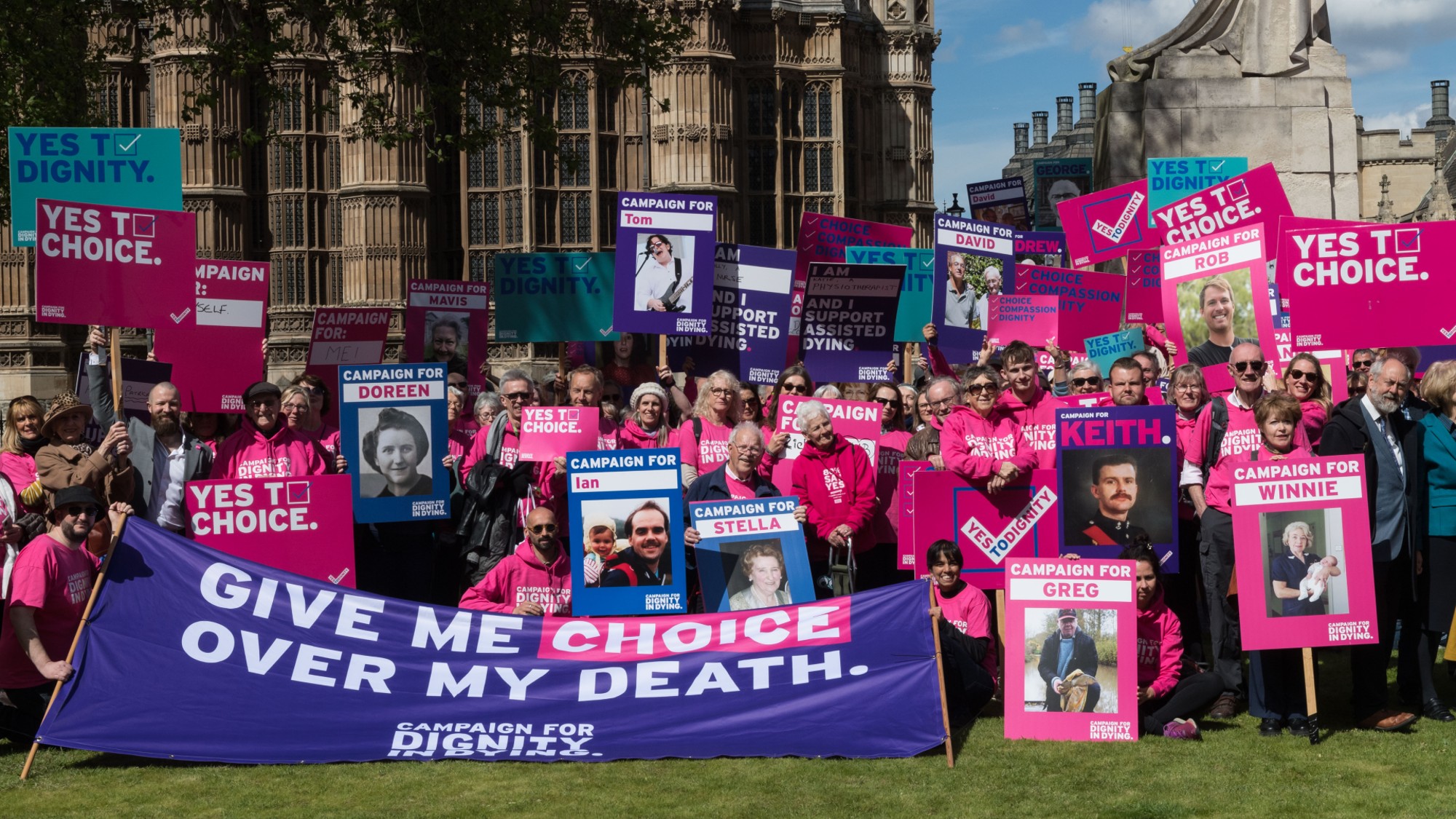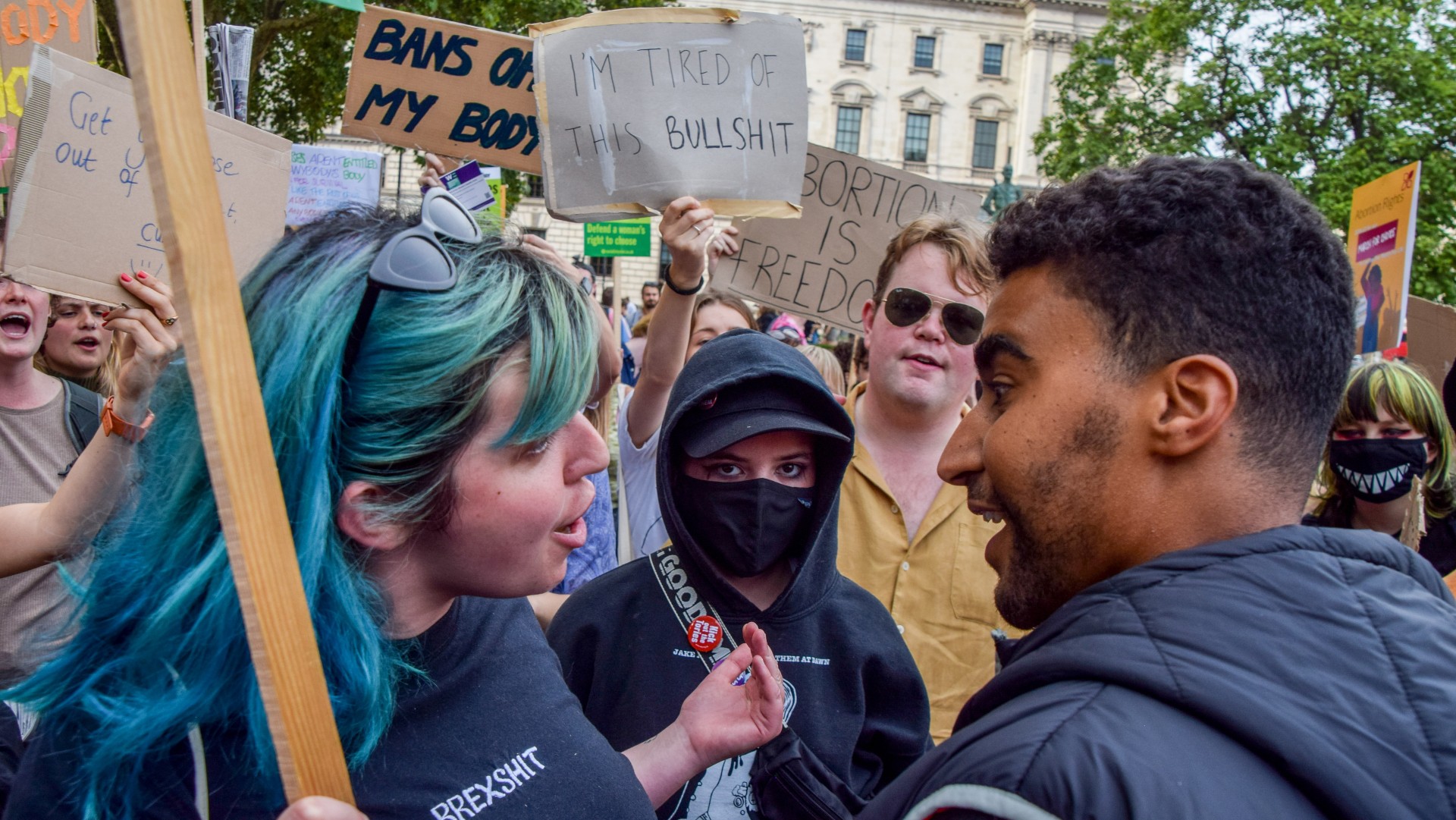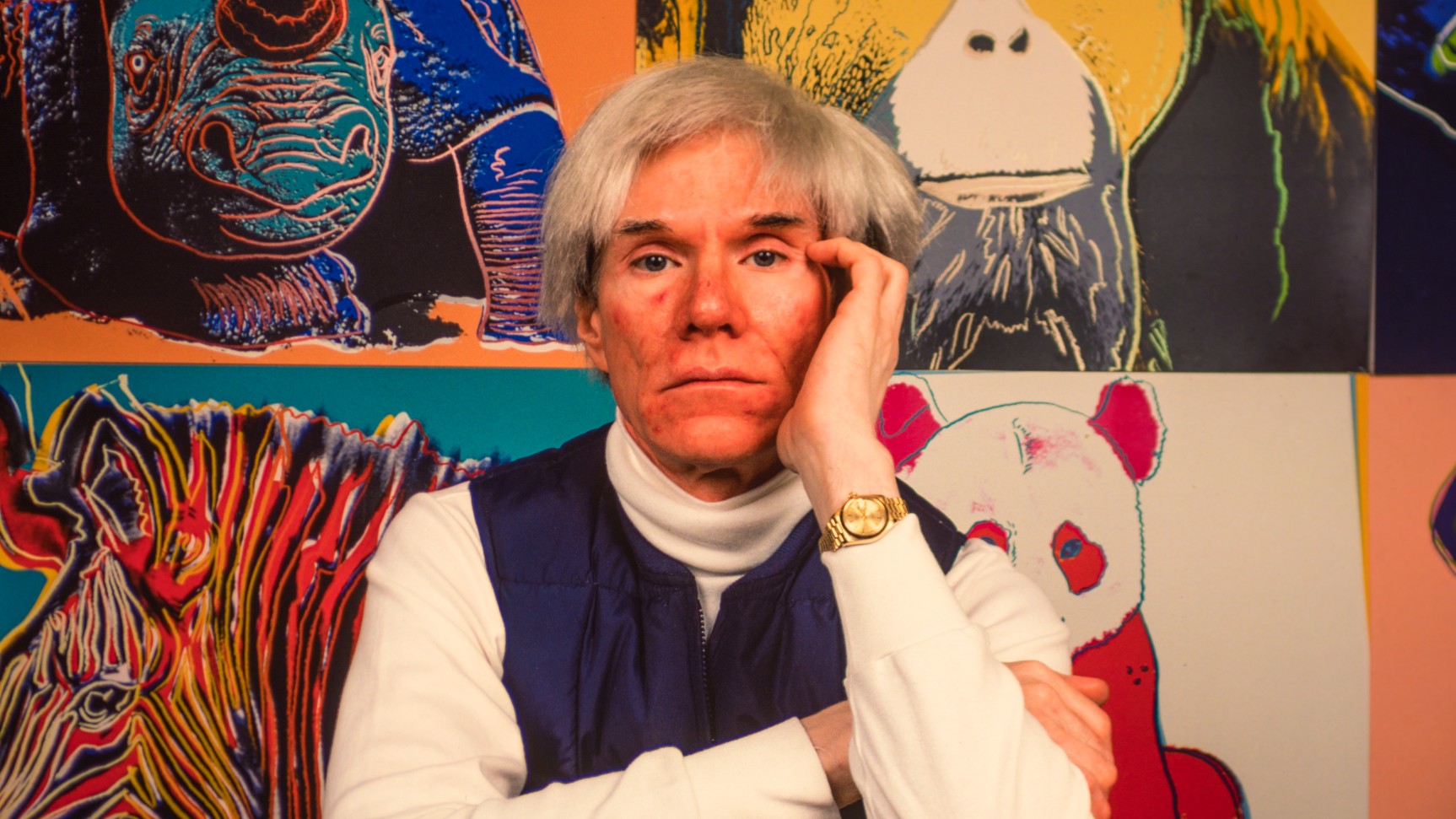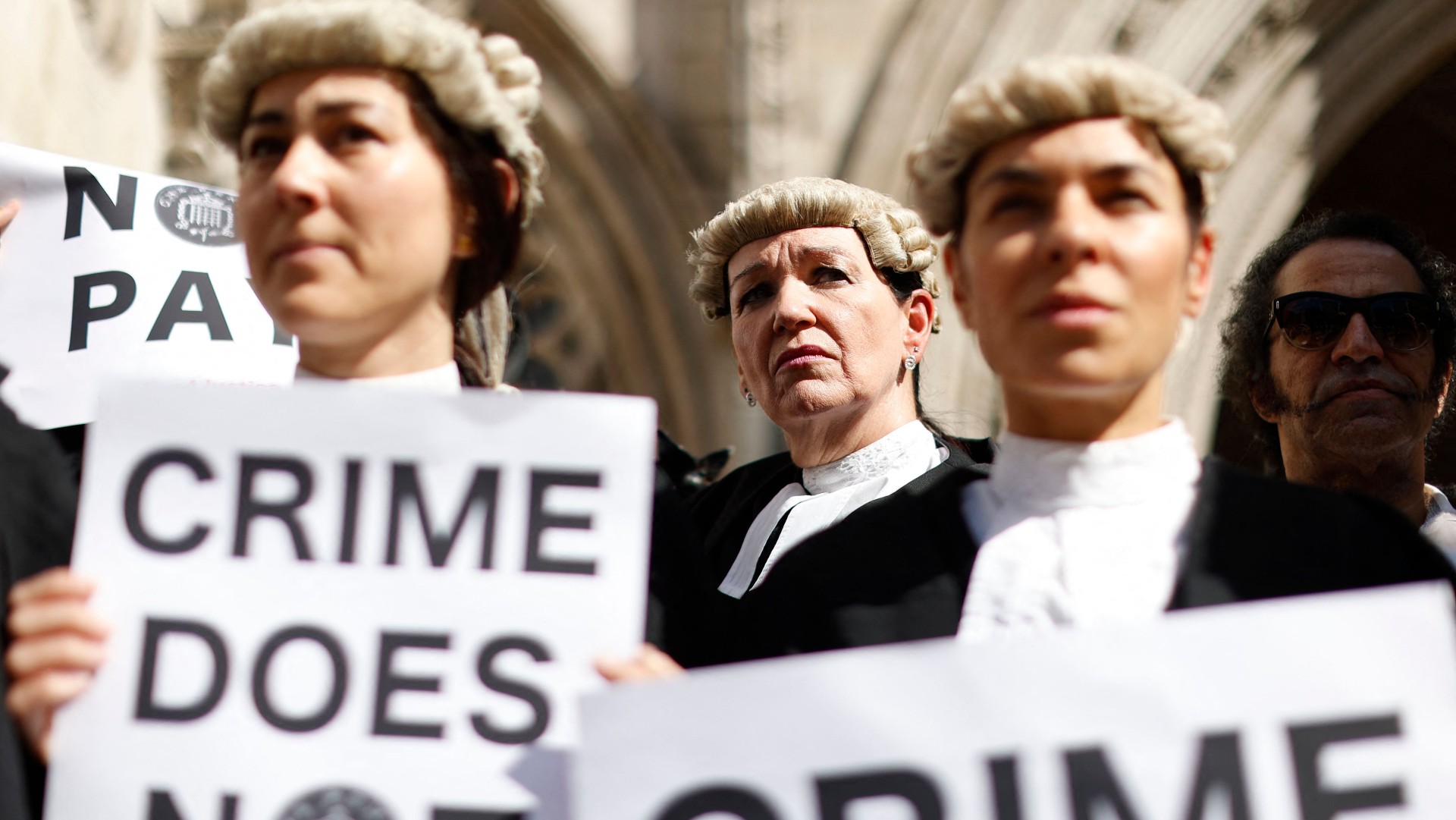Disaster trolls and conspiracy theories: is legislation the answer?
Two Manchester Arena bombing victims are taking landmark legal action against conspiracy theorist Richard D. Hall

A free daily email with the biggest news stories of the day – and the best features from TheWeek.com
You are now subscribed
Your newsletter sign-up was successful
Survivors of the Manchester Arena bombing are taking a so-called “disaster troll” to court after he claimed the attack was faked.
Martin and Eve Hibbert were left with severe disabilities following the 2017 attack in which 22 people were killed at an Ariana Grande concert.
The father and daughter are suing conspiracy theorist Richard D. Hall for defamation and harassment – “the first time such action has been launched in the UK against a conspiracy theorist”, said the BBC.
The Week
Escape your echo chamber. Get the facts behind the news, plus analysis from multiple perspectives.

Sign up for The Week's Free Newsletters
From our morning news briefing to a weekly Good News Newsletter, get the best of The Week delivered directly to your inbox.
From our morning news briefing to a weekly Good News Newsletter, get the best of The Week delivered directly to your inbox.
Hall was the subject of a Radio 4 and BBC Panorama investigation last year, in which he admitted that he spied on Eve, who was left severely disabled by the blast, from a parked vehicle outside her home. Hall has released a book and a number of videos claiming the Manchester Arena bombing was faked.
Now the family are seeking damages and an injunction to prevent him from making further allegations, with questions also being raised about how the government’s recently revised Online Safety Bill could help tackle the issue.
‘One of UK’s most brazen conspiracy theorists’
Hall is one of the UK’s most “brazen” conspiracy theorists, and his videos have generated 16 million views online, said The Times. Starting as a “UFO fancier”, he soon “moved into more sinister areas”, said the paper. As well as spying on Eve Hibbert, Hall also “turned up unannounced at the workplace of another Manchester bombing victim, Lisa Bridgett, posing as a customer to assess if she was lying about her injuries”, the paper added.
The conspiracy theorist has also falsely claimed that the murder of MP Jo Cox – who was shot and stabbed to death by far-right extremist Thomas Mair in 2016 – was a “state-sponsored plot” planned by two police detectives.
A free daily email with the biggest news stories of the day – and the best features from TheWeek.com
The case being brought against Hall echoes the one brought against US conspiracy theorist Alex Jones, who was ordered to pay almost $1.5bn (£1.22bn) by a US court to families of the Sandy Hook school shooting after he falsely claimed the 2012 attack was faked.
Martin Hibbert told the BBC that he hopes the action he is taking against Hall will set a precedent in UK law that will help protect others who survive disasters only to be the victim of online trolls and conspiracy theorists.
“It does sometimes feel like a bit of a weight, so it would be nice to be able to put it to bed and just be able to move on with our lives,” he told the broadcaster.
‘A Frankenstein bill’
Following the BBC's investigation, Hall’s YouTube channel, with more than 80,000 followers, was removed. The government has recently revised the Online Safety Bill, which aims to hold tech giants accountable for harmful content such as Hall’s, shared on their platforms. The initial version of the bill placed a “duty of care” on these large platforms to address harmful but not illegal content.
But this “alarmed free speech advocates on the Conservative backbenches and elsewhere”, said The Guardian, and so the clause was removed.
One of those backbenchers, John Hayes, a former security minister, told The Telegraph: “It is very important in the proper effort to control the excesses of the internet that we don’t allow free speech to be inhibited by woke prejudices about what views are acceptable.”
“Repeated changes in government policy”, driven in part by “four prime ministers and five digital ministers since the proposals were first published in 2019”, have created “a Frankenstein bill aimed at pleasing everyone”. But it has left “few, if anyone, satisfied with how the legislation is shaping up”, said Politico.
-
 Is Andrew’s arrest the end for the monarchy?
Is Andrew’s arrest the end for the monarchy?Today's Big Question The King has distanced the Royal Family from his disgraced brother but a ‘fit of revolutionary disgust’ could still wipe them out
-
 Quiz of The Week: 14 – 20 February
Quiz of The Week: 14 – 20 FebruaryQuiz Have you been paying attention to The Week’s news?
-
 The Week Unwrapped: Do the Freemasons have too much sway in the police force?
The Week Unwrapped: Do the Freemasons have too much sway in the police force?Podcast Plus, what does the growing popularity of prediction markets mean for the future? And why are UK film and TV workers struggling?
-
 Captain Tom: a tarnished legacy
Captain Tom: a tarnished legacyTalking Point Misuse of foundation funds threatens to make the Moore family a disgrace
-
 Assisted dying: will the law change?
Assisted dying: will the law change?Talking Point Historic legislation likely to pass but critics warn it must include safeguards against abuse
-
 Smoking ban: the return of the nanny state?
Smoking ban: the return of the nanny state?Talking Point Starmer's plan to revive Sunak-era war on tobacco has struck an unsettling chord even with some non-smokers
-
 When does adulthood begin?
When does adulthood begin?Talking Point From 16-year-old voters to lifetime bans on smoking, young people are living through a transition in views on political, social and emotional maturity
-
 Abortion law reform: a question of safety?
Abortion law reform: a question of safety?Talking Point Jailing of woman who took abortion pills after legal limit leads to calls to scrap ‘archaic’ 1861 legislation
-
 Andy Warhol, Prince and a question of copyright
Andy Warhol, Prince and a question of copyrightTalking Point Supreme Court ruling that sent shockwaves through art world could have huge implications for AI image generation
-
 Menopause: a matter for the law?
Menopause: a matter for the law?Talking Point The Government has decided against making menopause a ‘protected characteristic’ under the Equality Act
-
 Should criminal barristers be allowed to strike?
Should criminal barristers be allowed to strike?Talking Point Prolonged dispute over cuts to pay and legal aid has led to indefinite walkout in September